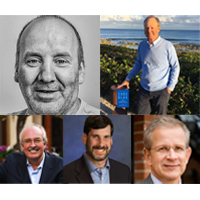BY MIKE MAGEE
Former President Donald Trump’s indictment this morning reinforces most Americans’ belief that “No man is above the law.” But few of us have taken the time to explore what that statement means when it comes to building a healthy nation, and why we believe it.
How do you create a healthy nation?
This is at once a very simple and a very complex question. It is at the heart of successful and failed nation building.
It applies equally to a self-assessment of our approach to rebuilding Germany and Japan as part of the Marshall Plan after WW II, and to our own struggles with autonomy and disparity in America where our very beginnings were (and continue to be) marred by a history of enslavement of blacks, forced migration and cultural destruction of Native Americans, and subjugation of women.
The law, a blend of agreed upon rules, regulations and boundaries, arose in layers over time, and reflected the communities where they emerged. Our own American legal system, on which we relied to launch this nation-building exercise in 1776, is dynamic and continues to evolve to this day.
As legal historian Lawrence Friedman wrote, “Despite a strong dash of history and idiosyncrasies, the strongest ingredient in American law at any given time is the present – current emotions, real economic interests, and concrete political groups.” It is then “a study of social development unfolding through time…”
When building a nation, some countries like France and Germany, relied on written codified rules, statutes or “rational instruments” on which they leaned to create order and to base decisions. But our laws, upon which this nation was built, if they have a basis, were descendant from British law.
Continue reading…















